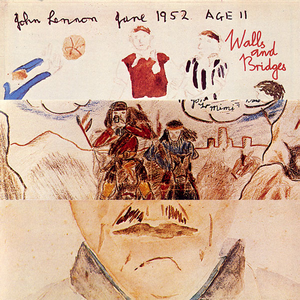
Walls and Bridges is the fifth solo studio album by English musician John Lennon. It was issued by Apple Records on 26 September 1974 in the United States and on 4 October in the United Kingdom. Written, recorded and released during his 18-month separation from Yoko Ono, the album captured Lennon in the midst of his "Lost Weekend". Walls and Bridges was an American number-one album on both the Billboard and Record World charts and included two hit singles, "Whatever Gets You thru the Night" and "#9 Dream". The first of these was Lennon's first number-one hit in the United States as a solo artist, and his only solo chart-topping single in either the US or Britain during his lifetime.

Forgiven, Not Forgotten is the debut studio album by Irish pop rock group the Corrs. It was released by Atlantic Records on 26 September 1995 across the world. The album was primarily produced by David Foster, with additional production by Jim Corr. In January 1997, a special tour edition of the album was released in Australia and New Zealand and featured a bonus disc containing live and rare tracks which were recorded from their Forgiven, Not Forgotten World Tour.
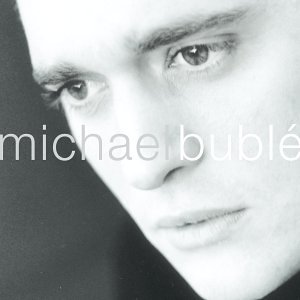
Michael Bublé is the third studio album by Canadian singer Michael Bublé. It was released on 143 Records and Reprise Records. The album was released on February 11, 2003 and was Bublé's major label debut. It spawned four singles: "How Can You Mend a Broken Heart", "Kissing a Fool", "Sway" and "Spider-Man Theme".

Evermore were a rock band formed in Feilding, New Zealand, in 1999, made up of three brothers Jon, Peter and Dann Hume. The band was based in Sydney from 2004 to 2007 and then Melbourne until they became inactive in 2014. Evermore released four studio albums: Dreams (2004), Real Life (2006), Truth of the World: Welcome to the Show (2009), and Follow the Sun (2012), as well as a self-titled compilation album (2010). Real Life and Truth of the World were their highest charting studio albums in New Zealand and Australia, while Dreams and Real Life received platinum certifications from Australian Recording Industry Association (ARIA).

The Best of James Taylor is the fourth compilation album by American singer-songwriter James Taylor released by Warner Bros. Records in 2003. The same album was released in Europe as You've Got a Friend: The Best of James Taylor.
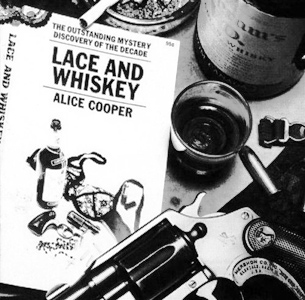
Lace and Whiskey is the third solo and tenth overall studio album by American rock singer Alice Cooper, released on April 29, 1977, by Warner Bros. Records.

"Cowboy Style" is a song recorded by Australian singer and songwriter Kylie Minogue, for her sixth studio album Impossible Princess (1997). The song was released as the fourth and final single on 5 October 1998 through Mushroom Records. Minogue wrote the track with Steve Anderson and Dave Seaman while Brothers in Rhythm produced it. Backed by guitars, synthesisers and drum instruments, "Cowboy Style" is a Celtic pop track in which Minogue sings about her relationship with her then-boyfriend, French director Stephane Sednaoui. Critical response to "Cowboy Style" was positive, with praise driven to Minogue's songwriting and the song's composition; some critics highlighted it as a career stand-out track. Released in Australia and New Zealand, the song charted at number 39 on the Australian Singles Chart.

On the Night is the second live album by the British rock band Dire Straits, released on 10 May 1993 by Vertigo Records internationally, and by Warner Bros. Records in the United States. The album features many of the band's later hits, including the singles "Walk of Life" and "Money for Nothing". The cover art of the album features dishes of the Very Large Array in central New Mexico.

"Born to Try" is a song by Australian singer-songwriter Delta Goodrem, written by Goodrem and Audius Mtawarira and produced by Ric Wake for Goodrem's debut studio album, Innocent Eyes (2003). The song was released as the first single off the studio album on 11 November 2002 by Epic Records. It was later featured on her first Japanese compilation album Innocent Eyes (2006). The song was co-written by her while she was staying at her home in Sydney, Australia, for the production of the studio album, as well as written and producing four other songs together.

The Rose is the soundtrack to the feature film of the same name starring Bette Midler which was released in 1979.

"Cry" is a song by American country music singer Faith Hill. It was released as the first single from her fifth studio album of the same name (2002). The song was originally written and recorded by singer-songwriter Angie Aparo for his 1999 album, The American. In 2003, at the 45th Annual Grammy Awards, Hill won the Grammy Award for Best Female Country Vocal Performance for "Cry", marking her second win in the category.
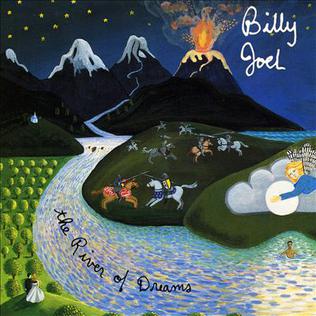
"The River of Dreams" is a song by American musician Billy Joel. It is the title track and first single from his twelfth album, River of Dreams (1993). It was released in July 1993 by Columbia Records and became a hit, peaking at number three on the US and UK charts, making it Joel's best-charting single of the decade as well as his final top ten in either country to date. It also hit the top spot in Australia, New Zealand, and on the Canadian and US Adult Contemporary charts. The song was produced by Joe Nicolo and Danny Kortchmar. Its accompanying music video was directed by Andy Morahan and filmed in Connecticut, the US.

Ayers Rock were an Australian rock band which formed in August 1973. Ray Burton, Mark Kennedy (drums), and Duncan McGuire (bass), members of Leo de Castro and Friends, left to form the eponymous trio of Burton, McGuire & Kennedy. They added a guitarist, Jimmy Doyle, changed their name to Ayers Rock and invited Col Loughnan to join. The group signed with independent label Mushroom Records in December 1973. Burton left the following March, and he was replaced by Chris Brown. With live appearances, coverage in print media and word of mouth, the group had a high national profile despite little radio airplay, and journalists praised their musicianship, music, and live energy.
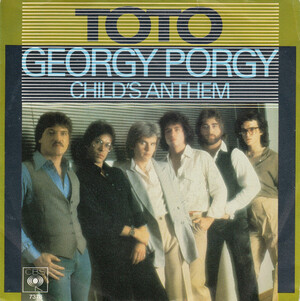
"Georgy Porgy" is a song by American rock band Toto. It was written by band member David Paich and included on their self-titled debut album in 1978. Released as the album's third single in 1979, the song reached number 11 on the New Zealand Singles Chart and number 48 on the US Billboard Hot 100. It also peaked at number 18 on Billboard's Hot R&B/Hip-Hop Songs chart.
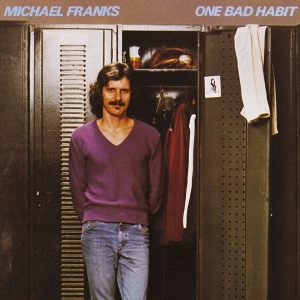
One Bad Habit is a vocal album by Michael Franks, released in 1980 by Warner Bros. Records. It was Franks' sixth studio album and the first to receive significant radio play in the United States.
Crossfire was an Australian jazz-fusion band active from 1974 to 1991, which recorded five studio albums. The primary composers of the group were founding members Jim Kelly (guitars) and Michael Kenny. Other members of Crossfire included Ian Bloxsom, Greg Lyon and Phil Scorgie, Don Reid and Tony Buchanan, John Proud, Doug Gallacher, Steve Hopes, and Mark Riley (drums).

The Dream 1973–2011 is a jazz vocal boxed set album by Michael Franks, released in 2012 with Warner Music France.

"Didn't We" is a song recorded by Irish singer and actor Richard Harris for his debut studio album, A Tramp Shining (1968). It was written and produced by Jimmy Webb and originally served as the B-side to Harris' 1968 single "MacArthur Park". "Didn't We" was then distributed as the record's single by Dunhill Records, also in 1968. A traditional pop song, Harris sings about his life in the past. Commercially, it charted at lower positions of both the United States and Canada, and in the higher ranks of their Adult Contemporary component charts. Harris featured "Didn't We" on several of his greatest hits albums, including The Richard Harris Collection: His Greatest Performances from 1973. That same year, the song was reissued as a promotional single paired alongside his 1971 single "My Boy".
"The Other End (Of the Telescope)" is a song by American band 'Til Tuesday, which was released in 1988 on their third and final studio album Everything's Different Now. The song was written by Aimee Mann and Elvis Costello. Costello recorded his own version of the song for his 1996 album All This Useless Beauty.

Sons of the Sun is the sixth studio album by American country music duo The Bellamy Brothers. It was released in 1980 via Warner Bros. and Curb Records. The albums includes the singles "Lovers Live Longer" and "Do You Love as Good as You Look".

















